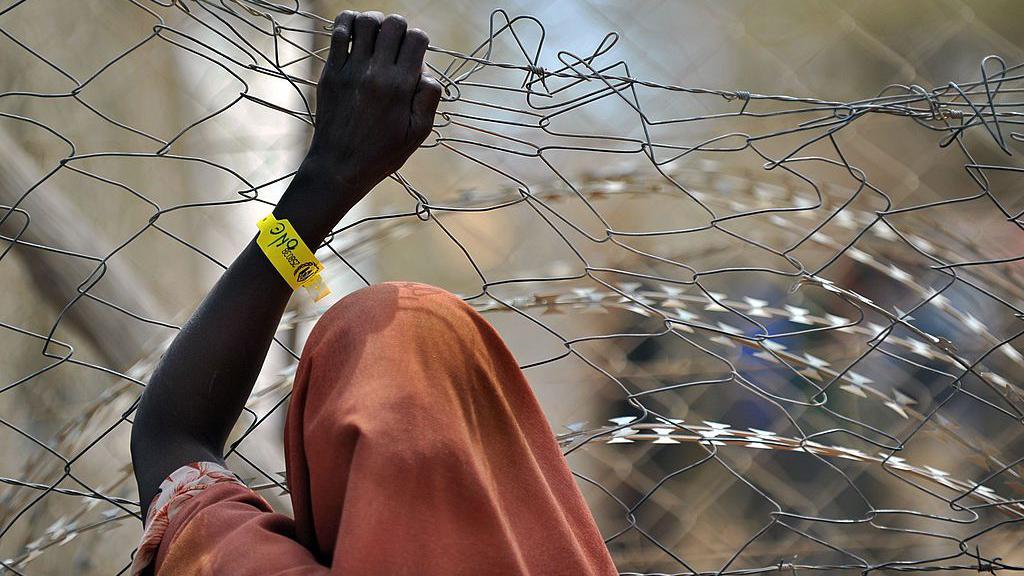Kenya has long been considered a refuge for individuals seeking solace from the violence and political persecution plaguing their home countries. However, ongoing incidents, including the recent abduction of four Turkish refugees in Nairobi, have raised alarm among human rights groups regarding the nation’s commitment to protecting displaced individuals. The abducted refugees, who held UN-recognized status, were deported following a request from the Turkish government, allegedly in connection with treason charges. This has led to widespread criticism of Kenya for violating the principle of “non-refoulement,” which prohibits returning individuals to nations where they may face persecution. This growing trend has not only put refugees at risk but has also marred Kenya’s longstanding reputation as a safe haven, prompting discussions at the highest levels of intelligence in the US and UK during a recent visit to Nairobi.
Kenya’s government is navigating a complex diplomatic landscape, balancing its relationships with foreign powers against its humanitarian obligations. The recent actions against the Turkish refugees represent a troubling departure from Kenya’s historical adherence to international refugee protections. Officials, like the refugee commissioner, have been largely tight-lipped about the situation, though the foreign ministry has acknowledged the delicate balance needed for diplomatic relations. In this instance, it appears that Kenya deemed its engagement with Turkey — which agreed to a military cooperation deal with Kenya — to be of greater importance than the protection of refugees. The implications of such a decision resonate deeply within the refugee community, leading many to question their safety within a country that was once perceived as a sanctuary.
Despite being one of the more stable countries in East Africa, Kenya’s refugee policies have been increasingly scrutinized. As the economic hub of the region, Kenya is home to over 800,000 refugees from nations rife with conflict and authoritarian governance, including the Democratic Republic of Congo, Eritrea, and South Sudan. However, the rising influence of foreign governments has raised concerns over the treatment of asylum seekers. In addition to the Turkish deportations, there have been allegations of Kenyan police facilitating the abduction of Ugandan opposition members and failing to protect asylum seekers from predatory actions by their home governments. High-profile cases, including the disappearance of Rwandan activist Yusuf Ahmed Gasana and the tragic death of Pakistani journalist Arshad Sharif, have all contributed to a growing climate of fear among refugees in Kenya.
The cases of individuals such as Mabior Awikjok Bak, a South Sudanese refugee abducted in Nairobi, further underline the precarious situation for those who critique their home governments. The unauthorized actions of Kenyan authorities, including the alleged collaboration with foreign security operatives, point to a significant failure in safeguarding the rights and liberties of refugees. Many individuals now report feeling increasingly unsafe, with fears escalating that the Kenyan authorities may betray them to their home nations. One refugee from Rwanda articulated the distressing reality of living in constant fear, believing that the Kenyan government is facilitating the tracking of dissenters by their oppressive regimes. This atmosphere fosters a climate of silence and hesitation among those seeking refuge, driving some to depend on organizations like the Refugee Consortium of Kenya for protection and assistance.
Rights organizations express grave concerns regarding the implications of such incidents for Kenya’s legal obligations to refugees. The Refugees Act of Kenya is designed to prevent the forced return of individuals who may face harm in their home countries. Yet multiple reports of deportations and abductions suggest that these laws are increasingly ignored, undermining the trust that refugees have placed in the Kenyan system. The fate of the recently deported Turkish nationals remains unknown, serving as a painful reminder of the vulnerabilities faced by asylum seekers. Reports indicate that those deported were affiliated with the Gulen movement, raising broader questions about the intersection of national security and humanitarian law within Kenyan governance.
As fears mount over the rising threats to refugees, stakeholders urge the Kenyan government to reconsider its approach. Critics argue that handing individuals over to the UN refugee agency could mitigate international backlash and restore some semblance of Kenya’s reputation. The government must confront the long-term consequences of its current policy direction, which fundamentally jeopardizes its standing on the global stage. Analysts worry that Kenya’s recent actions signal a willingness to relinquish its humanitarian commitments in favor of transient political interests, potentially opening the door to more restrictions and hostile policies toward refugees in the future.
Ultimately, the plight of refugees in Kenya highlights the complexity of balancing diplomatic relations with human rights commitments. Although the country has historically been viewed as a bastion for displaced individuals, recent developments are unsettling and threaten to reshape perceptions of Kenya’s role in protecting the world’s most vulnerable populations. As the situation continues to evolve, both local and international observers will be watching closely, hoping for a return to the principles of dignity, safety, and respect for human rights that once defined Kenya’s reputation as a safe haven for those escaping persecution and conflict.

